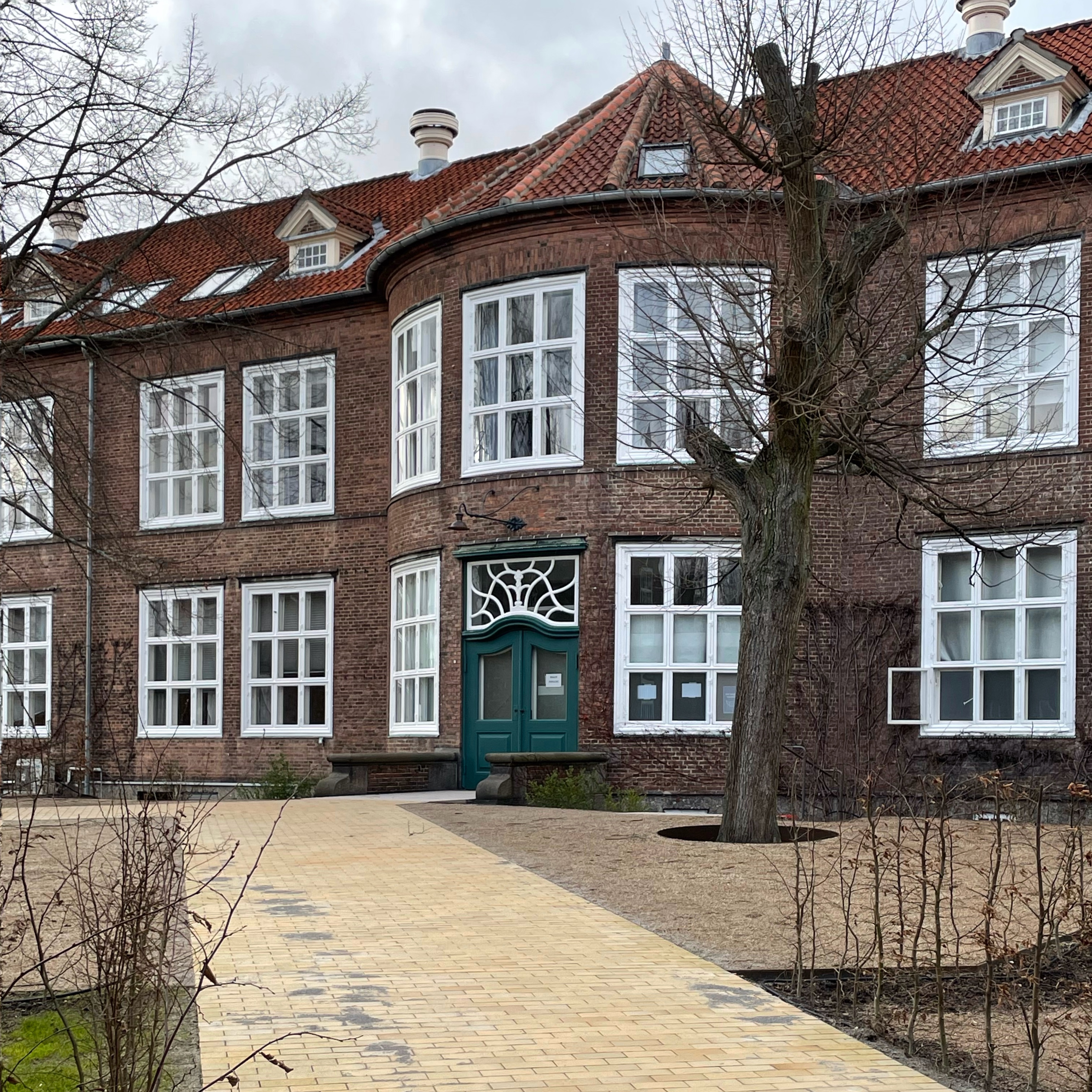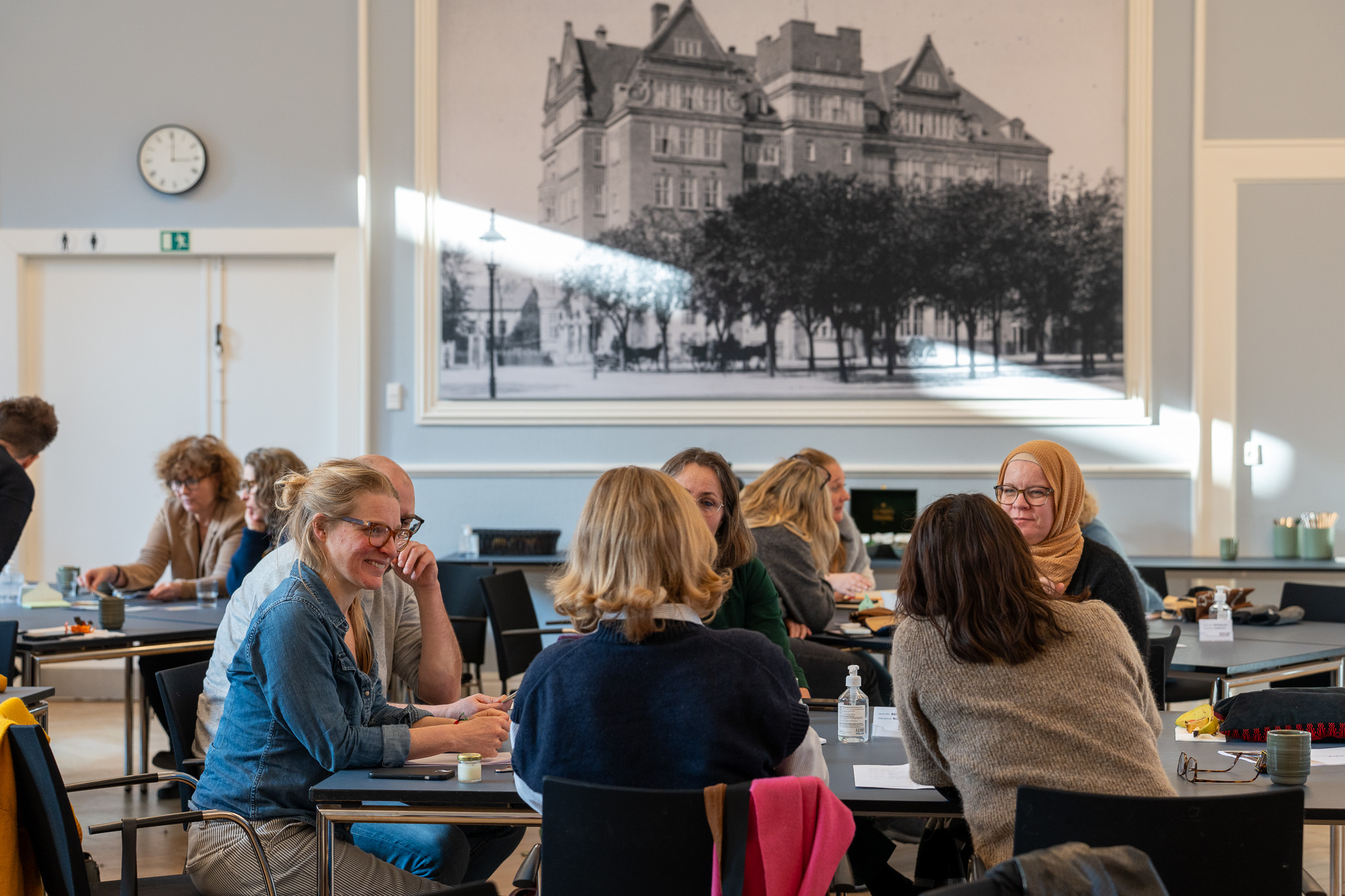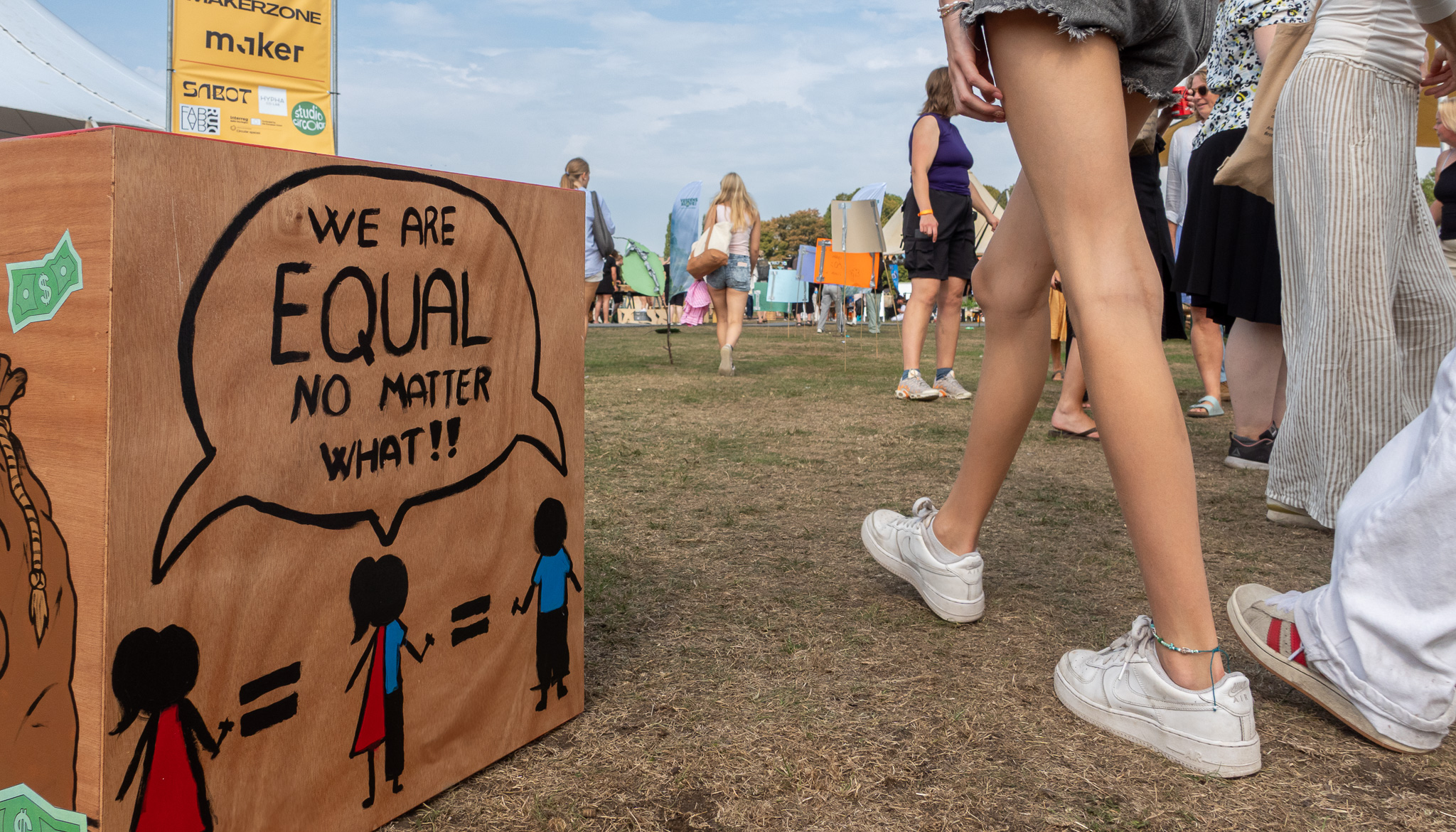
Research Network Begins Interdisciplinary Journey Toward an Equal Society

The Bevica Foundation's Universal Design Hub has brought together researchers from 9 different research institutions to focus on and gain more knowledge about how Universal Design can be a lever to achieve the promise of the World Goals Leave No One Behind
Behind the 17 colorful squares that we recognize when we talk about world goals hides the promise “Leave No One Behind”. We see Denmark as a country with high welfare and great opportunities for all, yet this promise is still relevant in our national context.
Among other things, people living with disabilities undergo education less often, walk longer hours and face challenges when using public transport more often than people who live without a disability. These issues do not remain within one discipline or sector, but have roots in all the sectors and disciplines that form the framework for lived life.
We must therefore work cross-disciplinarily to ensure that the implementation of the SDGs does not neglect the promise that no one should be left behind. And this is especially true of the vulnerable and the large group of Danes who live with reduced functional capacity.
The multidisciplinary research network represents different disciplines as well as sectors and research traditions. The network is set in the lake to explore the potential of working interdisciplinary with an issue that is influenced by all the ways we build and organize our communities.
With their expertise, the researchers each add to the growing understanding and knowledge of how we can create a society in which everyone is assured the opportunity to participate equally and master the framework of their own lives.
The Bevica Foundation has been working for almost 150 years for a more inclusive and equal society for people with mobility disabilities. The Bevica Foundation's Universal Design Hub and multidisciplinary research network are a natural next step in that work.
Marianne Kofoed, Director of the Bevica Foundation, believes that knowledge about universal design can be the way towards a more equal society in which we can all participate.
“Knowledge of universal design is an invitation to understand who we are as human beings. That our functional abilities are different and that it may require different solutions if we are all to have the opportunity to participate in social life on equal terms. Like, for example, everyone should be able to get an education, get a job, go to the city with friends or just let up in nature. The hub and the multidisciplinary network will contribute to increasing knowledge about universal design as strategy, value and method. We must ensure that knowledge flows into education so that those who in the future contribute to setting the framework for the life lived naturally think of us all.”
“The academic conversation between researchers from different research disciplines is both exciting and necessary to advance the research,” says network member Ulrika K. Stigsdotter, MSO professor at the University of Copenhagen. “My hope is that the collaboration in the research network will help raise the academic and research status of Universal Design in Denmark.”
September 22—23, the Bevica Foundation's Universal Design Hub held the first gathering for the research network, in corona-friendly conditions at Sofienberg Castle. In true 2020 fashion, there was, of course, both plenty of hand sanitizer, elbow greetings and online presentations.
Research and Development Manager Camilla Ryhl set the framework for the days based on the history of the Bevica Foundation and her own research, which for the past 20 years has focused on Universal Design. She concluded the presentation by stressing how important it is that we work interdisciplinary with Universal Design if we are to lift the agenda of the world goals — Leave No One Behind.
Today's digital master class was held with a visit from the internationally renowned researcher Inger Marie Lid. Lid, professor at VID University of Science in Norway, published in winter 2020 the book “Universal design og”, which also forms the theoretical basis for the first academic discussion in the network.
Lid's research deals with the ethical and moral areas of the human view that characterize society.” In my research, I have emphasized exploring universal design as an interdisciplinary field of study and a strategy to strengthen human rights in general and the rights of persons with disabilities in particular. Universal design carries within itself a critique of the expectation that all people are equal. We are different as human beings and have equal rights as citizens.”
Lid's input formed the backdrop for the network's discussion of how Universal Design can be a tool to build a society where everyone can participate and contribute.
This message was echoed by network member John Paulin Hansen, professor at DTU. “Everyone should be able to be part of our society,” he said. “We must think from the very beginning about how we design our products, buildings and services in such a way that they can be used by everyone.”
The network meets for intensive working days three times a year and continuously works together to publish, disseminate and formulate research projects with an interdisciplinary focus on Universal Design as a lever for Leave No One Behind.
The members of the Bevica Foundation's Interdisciplinary Research Network are:
John Paulin Hansen — DTU, Ulrika Stigsdotter — KU, Masashi Kajita — The Royal Academy, Eva Brandt — Design School Kolding, Kristian Møller Moltke Mart
The submission is from 2020. Today, there are over 40 researchers in the network. See them hereto.
Latest News
Follow the latest news from the Bevica Foundation below.



